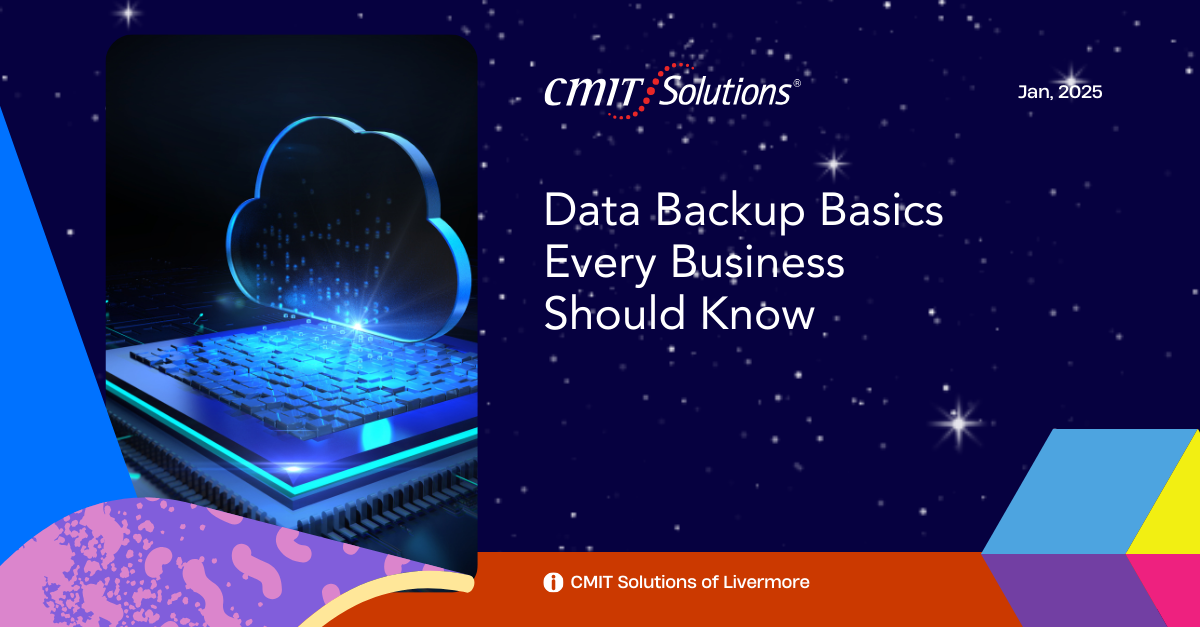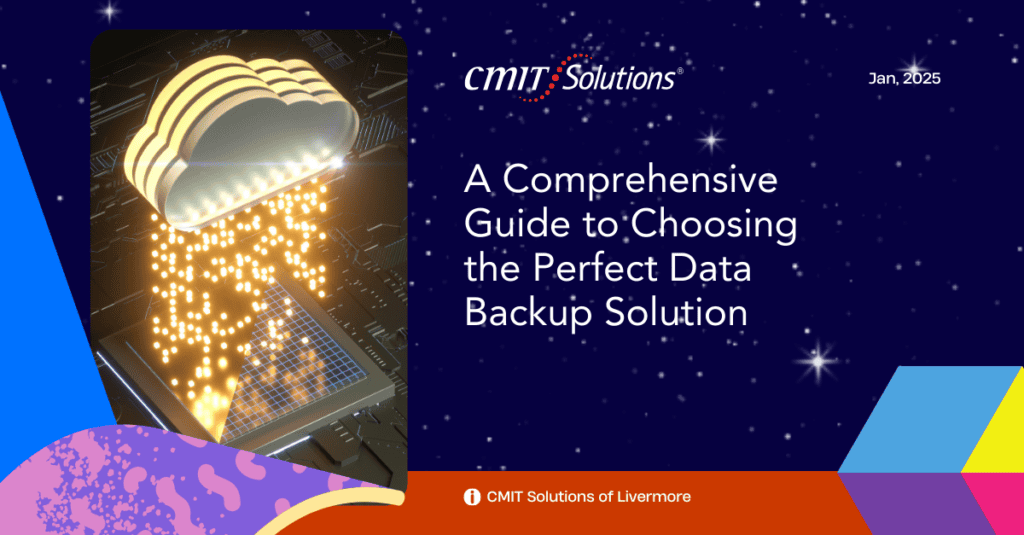Introduction
Data is one of the most valuable assets for businesses, yet many companies fail to implement a robust backup strategy. Whether due to cyberattacks, hardware failures, or natural disasters, data loss can have severe consequences, including financial losses, operational disruptions, and compliance violations.
A strong data backup and disaster recovery plan ensures that businesses can recover critical information, minimize downtime, and maintain business continuity. This guide outlines the fundamental principles of data backup, the different types of backup strategies, and the importance of working with a trusted IT provider to secure business data effectively.
Why Data Backup is Critical for Businesses
Businesses rely on digital records, customer data, financial transactions, and internal communications to function effectively. Losing any of this information can cripple operations and damage customer trust.
Outsourced IT Support Livermore provides proactive backup solutions to safeguard businesses from data loss risks.
Additionally, data compliance regulations require businesses to secure and retain sensitive information to avoid legal penalties. IT Compliance Livermore ensures companies meet industry standards like GDPR, HIPAA, and PCI DSS through secure data storage and backup protocols.
Types of Data Backup Strategies
A well-designed data backup plan involves multiple layers of security to prevent data loss and facilitate recovery. Businesses should adopt a multi-tiered approach that includes:
1. Full Backup
A full backup copies all data in a system, creating a comprehensive snapshot that can be restored in case of data loss. This method is ideal for critical business data but requires significant storage space.
By implementing Livermore IT Support Services, businesses can ensure that full backups are scheduled appropriately without overloading storage resources.
2. Incremental Backup
An incremental backup only saves changes made since the last backup. This method requires less storage and shorter backup times but may take longer to restore.
For small businesses, Small Business IT Support Livermore helps design incremental backup strategies that balance storage efficiency and quick data recovery.
3. Differential Backup
A differential backup saves all changes since the last full backup, making recovery faster than incremental backups but requiring more storage space.
With IT Support Livermore, businesses can optimize backup frequency to ensure minimal data loss without excessive storage consumption.
The 3-2-1 Backup Rule for Data Protection
One of the most effective backup strategies is the 3-2-1 rule, which recommends:
✔ 3 copies of data (one primary and two backups)
✔ 2 different storage media (local drive and cloud storage)
✔ 1 offsite copy (to protect against disasters)
By working with Managed IT Services Livermore, businesses can implement the 3-2-1 backup strategy, ensuring maximum data redundancy and security.
Cloud Backup vs. On-Premises Backup: Which is Right for You?
Businesses must decide between cloud-based backup solutions and on-premises backup systems based on their data security needs, budget, and recovery speed.
Cloud Backup
✔ Automatic and scalable storage
✔ Accessible from anywhere
✔ Protection against physical disasters
Cybersecurity Services Livermore ensures that cloud backups are encrypted, compliant, and protected from cyber threats.
On-Premises Backup
✔ Immediate access to backups
✔ Lower long-term costs for large data storage
✔ Greater control over security
With Livermore IT Management, businesses can establish secure on-premises storage solutions while integrating cloud backups for added redundancy.
Preventing Data Loss with Cybersecurity Solutions
Data backup alone is not enough—businesses must also protect backups from cyberattacks and unauthorized access.
✔ Enable multi-factor authentication (MFA) for backup access control
✔ Encrypt stored data to prevent unauthorized access
✔ Regularly test backup recovery to ensure quick data restoration
Cybersecurity Solutions Livermore provides advanced security measures to protect backup systems from ransomware attacks and cyber threats.
By working with It Support Companies Livermore, businesses can conduct regular cybersecurity assessments to ensure backup integrity and secure storage.
Choosing the Right Managed IT Provider for Data Backup
Partnering with a trusted IT provider ensures that businesses receive expert backup management, disaster recovery planning, and 24/7 support.
Managed IT Provider Livermore offers customized backup solutions that align with business continuity objectives.
For companies looking for efficient data protection strategies, It Support Services Livermore provides cloud backup, encrypted storage, and automated disaster recovery solutions.
Conclusion
Data loss can be devastating for businesses, making data backup an essential component of IT security. Implementing a comprehensive backup strategy ensures that critical information is protected, recoverable, and accessible in case of an emergency.
Businesses must adopt best practices, such as the 3-2-1 backup rule, secure encryption, and cloud integration, to mitigate risks and enhance business resilience.
By working with Livermore Managed IT Support, companies can ensure data protection, compliance adherence, and seamless recovery.
For reliable IT backup services, Business IT Support Livermore provides businesses with tailored data protection solutions, 24/7 monitoring, and advanced cybersecurity measures to prevent data loss and enhance business continuity.



